April 20 stands as one of history’s most eventful days, witnessing the rise and fall of empires, groundbreaking discoveries, and moments that shaped our modern world across centuries of human achievement.
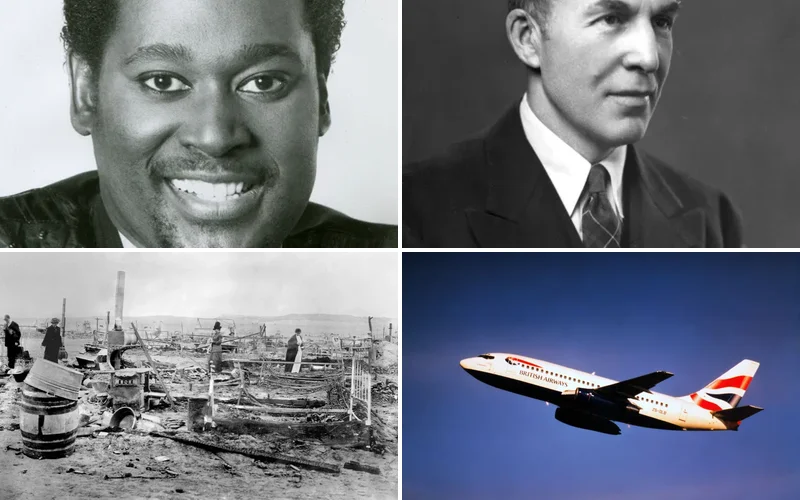
Politics and Government Events on April 20
1922 – South Ossetian Autonomous Oblast Created
The Soviet government established the South Ossetian Autonomous Oblast within the Georgian Soviet Socialist Republic. This administrative decision carved out a distinct territory for the Ossetian people within Georgia’s borders.
The creation of this autonomous region would later become a source of significant political tension. Decades later, disputes over South Ossetia’s status would contribute to armed conflicts between Georgia and Russia.
1946 – League of Nations Officially Dissolves
The League of Nations formally ended its existence on this historic date, transferring most of its remaining powers to the newly formed United Nations. The dissolution marked the end of the world’s first international peacekeeping organization.
World leaders recognized that the League had failed to prevent World War II. The transfer of authority to the United Nations represented humanity’s renewed commitment to international cooperation and collective security.
1961 – Bay of Pigs Invasion Fails
The CIA-backed invasion of Cuba by Cuban exiles ended in complete failure after three days of fighting. American-trained forces found themselves overwhelmed by Fidel Castro’s military and abandoned by expected U.S. air support.
The failed invasion strengthened Castro’s grip on power and pushed Cuba firmly into the Soviet sphere of influence. President John F. Kennedy accepted full responsibility for the debacle, which became a defining moment of the Cold War.
1968 – Enoch Powell’s “Rivers of Blood” Speech
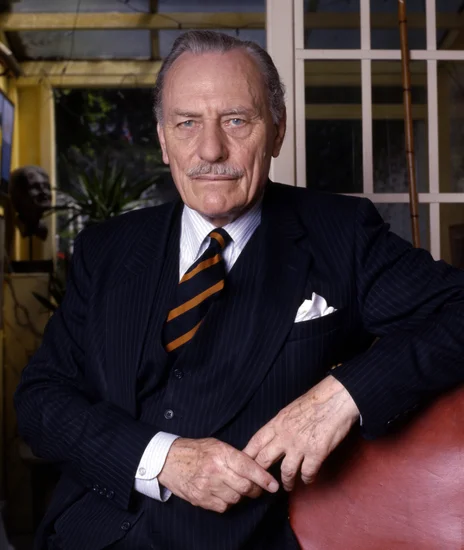
British Conservative politician Enoch Powell delivered his infamous immigration speech in Birmingham, England. The address predicted violent conflict arising from Commonwealth immigration to Britain.
Powell’s inflammatory rhetoric sparked immediate controversy and led to his dismissal from the Conservative Party shadow cabinet. The speech became a defining moment in British political discourse about race and immigration.
2021 – Derek Chauvin Found Guilty
A Minneapolis jury convicted former police officer Derek Chauvin on all charges in the murder of George Floyd. The unanimous verdict came after three weeks of testimony and nationwide attention.
The conviction represented a rare instance of a police officer being held criminally responsible for killing a civilian. The trial’s outcome sparked discussions about police accountability and racial justice across America.
Military and Naval History on April 20
1918 – Red Baron’s Final Victories

Manfred von Richthofen achieved his 79th and 80th aerial victories, marking his final triumphs before his death the following day. The legendary German fighter pilot demonstrated his exceptional skill one last time over the Western Front.
These victories cemented the Red Baron’s status as World War I’s most feared flying ace. His death just 24 hours later would remove Germany’s most potent symbol of aerial supremacy from the battlefield.
1945 – U.S. Troops Capture Leipzig
American forces successfully captured the German city of Leipzig during the final weeks of World War II. The victory demonstrated the rapid collapse of German resistance in central Germany.
The Americans would later cede the city to Soviet forces as part of previously agreed occupation zones. This transfer illustrated the complex political arrangements that would shape post-war Europe.
1949 – Amethyst Incident on Yangtze River
People’s Liberation Army forces attacked HMS Amethyst as the British frigate sailed toward Nanjing during the Chinese Civil War. The confrontation marked a dramatic escalation in tensions between Communist forces and Western powers.
The incident trapped the British vessel for months in Chinese waters. The ship’s eventual dramatic escape became one of the Royal Navy’s most celebrated episodes of the post-war era.
Science and Discovery Milestones on April 20
1902 – Curie Radium Refinement
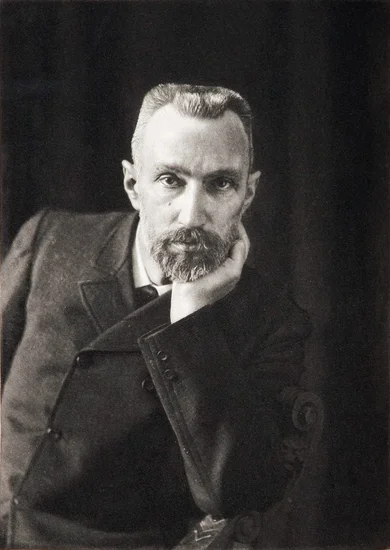
Pierre and Marie Curie achieved a breakthrough in their groundbreaking research by successfully refining radium chloride. Their meticulous work advanced humanity’s understanding of radioactive elements and their properties.
This achievement brought the Curies closer to isolating pure radium in measurable quantities. Their pioneering research laid the foundation for both nuclear physics and modern cancer treatment therapies.
1972 – Apollo 16 Lunar Landing
Commander John Young and Lunar Module Pilot Charles Duke successfully landed their spacecraft on the Moon’s surface. The mission marked humanity’s fifth successful lunar landing and demonstrated continued American space exploration capabilities.
The astronauts would spend three days conducting scientific experiments and collecting lunar samples. Their work significantly expanded scientific knowledge about the Moon’s geological composition and formation.
2023 – SpaceX Starship First Launch

SpaceX successfully launched its Starship rocket, the largest and most powerful rocket ever constructed by humanity. The massive vehicle represented a revolutionary leap forward in space transportation technology.
The rocket exploded four minutes into its maiden flight, but engineers considered the test a valuable learning experience. The ambitious project aims to enable human missions to Mars and revolutionize space travel.
Cultural and Arts Events on April 20
1908 – New South Wales Rugby League Opening Day
The inaugural competition of the New South Wales Rugby League commenced with great fanfare and public enthusiasm. This historic day marked the beginning of organized professional rugby league in Australia.
The new league would grow to become one of Australia’s most popular sporting competitions. The sport’s establishment helped define Australian sporting culture and national identity for generations to come.
2018 – Danica Patrick’s Historic Victory

Danica Patrick won the Indy Japan 300, becoming the first female driver in history to win an IndyCar Series race. Her groundbreaking victory shattered gender barriers in professional motorsports.
Patrick’s triumph inspired countless young women to pursue careers in racing and engineering. The victory demonstrated that exceptional talent and determination could overcome traditional gender limitations in competitive sports.
Religious and Social Events on April 20
1914 – Ludlow Massacre

Nineteen men, women, and children died when Colorado National Guard troops attacked a striking miners’ camp near Ludlow, Colorado. The violence erupted during a bitter labor dispute known as the Colorado Coalfield War.
The massacre shocked the American public and galvanized support for workers’ rights. The tragedy became a rallying point for labor unions and contributed to eventual improvements in workplace safety and compensation.
1999 – Columbine High School Massacre

Eric Harris and Dylan Klebold killed 13 people and wounded 24 others at Columbine High School in Colorado before taking their own lives. The devastating attack shocked the nation and sparked intense debates about school safety.
The massacre prompted comprehensive changes in school security protocols and emergency response procedures. The tragedy also intensified discussions about gun control, bullying, and mental health support for students.
Business and Economic Events on April 20
2020 – Oil Prices Turn Negative
Oil prices dropped below zero for the first time in recorded history, creating unprecedented chaos in global energy markets. The collapse resulted from the 2020 Russia-Saudi Arabia oil price war and plummeting demand during the COVID-19 pandemic.
Traders actually paid buyers to take oil contracts off their hands as storage capacity reached critical limits. The historic event demonstrated the vulnerability of commodity markets to geopolitical conflicts and global economic disruptions.
2010 – Deepwater Horizon Disaster
The Deepwater Horizon drilling rig exploded in the Gulf of Mexico, killing eleven workers and triggering a massive environmental catastrophe. The disaster began an oil spill that would continue for six months.
The explosion released millions of barrels of crude oil into Gulf waters, devastating marine ecosystems and coastal communities. The disaster led to billions of dollars in cleanup costs and legal settlements for BP and other companies involved.
Transportation and Infrastructure on April 20
2004 – Nicoll Highway Collapse

Singapore’s Nicoll Highway collapsed during construction work, killing four workers and injuring several others. The structural failure occurred during excavation work for the city’s Mass Rapid Transit system expansion.
The collapse prompted immediate safety reviews of construction projects throughout Singapore. Authorities implemented stricter monitoring procedures and safety protocols to prevent similar disasters in future infrastructure projects.
2020 – Pakistan Plane Crash

A passenger aircraft crashed in a residential area near Islamabad’s Benazir Bhutto International Airport, killing all 127 people aboard. The tragedy shocked Pakistan and raised serious questions about aviation safety standards.
The crash destroyed several homes and traumatized local communities. Investigators worked to determine whether mechanical failure, pilot error, or weather conditions contributed to the devastating accident.
2013 – Sichuan Earthquake
A powerful 6.6-magnitude earthquake struck Lushan County in China’s Sichuan province, killing at least 193 people and injuring thousands more. The disaster prompted massive rescue and relief operations across the affected region.
International aid organizations rushed to provide emergency assistance to earthquake victims. The tragedy highlighted the ongoing seismic risks facing millions of people living in China’s earthquake-prone regions.
Sports and Recreation on April 20
1908 – New South Wales Rugby League Inaugural Season
The New South Wales Rugby League held its opening day of competition, launching what would become Australia’s premier rugby league competition. Eight founding teams participated in the historic inaugural matches.
The league’s establishment marked the beginning of professional rugby league in Australia. The competition would evolve into the National Rugby League, becoming one of the country’s most popular and commercially successful sports.
2018 – Danica Patrick Makes History

Danica Patrick achieved motorsports history by winning the Indy Japan 300, becoming the first woman ever to win an IndyCar Series race. Her victory broke through decades of gender barriers in professional racing.
Patrick’s triumph inspired women worldwide and demonstrated that exceptional driving skill transcends gender limitations. The victory established her as one of the most successful female drivers in motorsports history.
1968 – South African Airways Flight 228 Crash

South African Airways Flight 228 crashed near what is now Hosea Kutako International Airport in Namibia, killing all 123 people aboard. The disaster remains one of the deadliest aviation accidents in southern African history.
The crash shocked the region and prompted investigations into aviation safety procedures. The tragedy highlighted the risks faced by air travelers during the early era of commercial jet aviation.
Notable Births on April 20
1889 – Adolf Hitler Born

Adolf Hitler entered the world in Braunau am Inn, Austria-Hungary, beginning a life that would profoundly impact world history. His early years showed little indication of his future political ambitions.
Hitler’s birth marked the beginning of one of history’s most destructive careers. His eventual rise to power would lead to World War II and the Holocaust, forever changing the course of human civilization.
1920 – John Paul Stevens Born
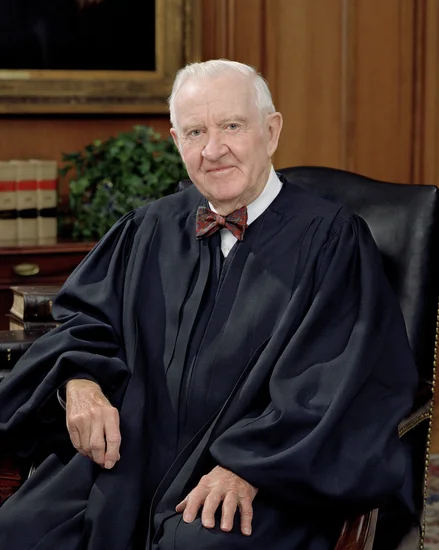
Future Supreme Court Justice John Paul Stevens was born in Chicago, Illinois, beginning a life dedicated to American jurisprudence. His early education laid the foundation for his distinguished legal career.
Stevens would serve on the Supreme Court for 35 years, becoming one of its most influential justices. His legal opinions helped shape American law on issues ranging from civil rights to executive power.
1939 – George Takei Born

Actor George Takei was born in Los Angeles, California, to Japanese-American parents who would later face internment during World War II. His childhood experiences would profoundly influence his later activism.
Takei achieved fame playing Sulu on Star Trek and became a prominent advocate for civil rights. His work helped advance both Asian-American representation in entertainment and LGBTQ+ equality.
1949 – Jessica Lange Born

Academy Award-winning actress Jessica Lange was born in Cloquet, Minnesota, beginning a career that would span decades of acclaimed performances. Her early life in the Midwest shaped her down-to-earth personality.
Lange would become one of America’s most respected actresses, winning two Academy Awards and numerous other honors. Her powerful performances in films like “Tootsie” and “Blue Sky” established her as a cinematic icon.
1951 – Luther Vandross Born
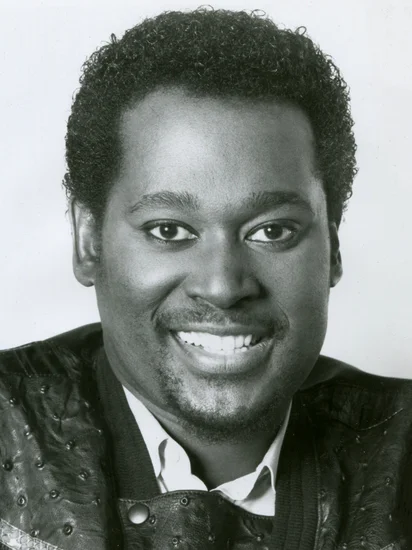
R&B legend Luther Vandross was born in New York City, beginning a musical journey that would define smooth soul for generations. His childhood exposure to diverse musical influences shaped his distinctive style.
Vandross would become one of the most successful R&B artists of all time, selling over 35 million records worldwide. His silky voice and romantic ballads made him the soundtrack to countless relationships and special moments.
1964 – Andy Serkis Born

Motion capture pioneer Andy Serkis was born in London, England, beginning a career that would revolutionize film performance. His theatrical background prepared him for groundbreaking work in digital cinema.
Serkis would transform movie-making through his performances as Gollum, King Kong, and Caesar in various blockbuster films. His innovative work helped establish motion capture as a legitimate form of acting.
1972 – Carmen Electra Born

Entertainer Carmen Electra was born Tara Leigh Patrick in Sharonville, Ohio, beginning a career that would span modeling, acting, and music. Her early dance training laid the foundation for her performance career.
Electra would achieve fame through “Baywatch” and “Singled Out,” becoming a cultural icon of the 1990s. Her work helped define the decade’s approach to entertainment and celebrity culture.
1983 – Miranda Kerr Born

Supermodel Miranda Kerr was born in Sydney, Australia, beginning a career that would make her one of the world’s most recognizable faces. Her early modeling work in Australia launched her international career.
Kerr would become the first Australian Victoria’s Secret Angel and build a successful business empire. Her entrepreneurial ventures in skincare and wellness demonstrated her business acumen beyond modeling.
Notable Deaths on April 20
1912 – Bram Stoker Dies
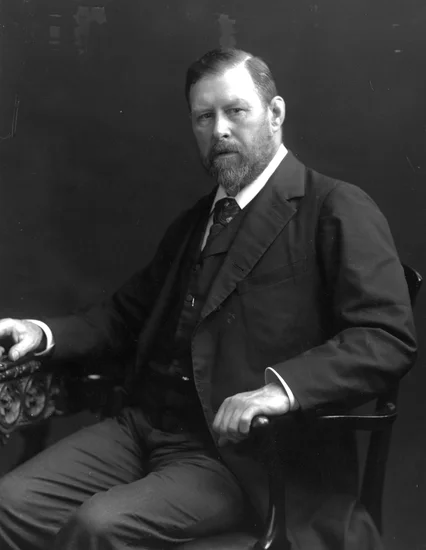
Irish author Bram Stoker died in London, England, after creating literature’s most enduring vampire character. His novel “Dracula” had already begun establishing his legacy as a master of Gothic horror.
Stoker’s creation of Count Dracula would influence countless writers, filmmakers, and artists for generations. His work helped define the modern vampire genre and remains a cornerstone of horror literature.
1918 – Karl Ferdinand Braun Dies
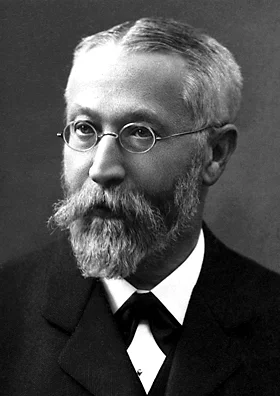
German physicist Karl Ferdinand Braun died in Brooklyn, New York, after winning the Nobel Prize for his contributions to wireless telegraphy. His innovations helped lay the groundwork for modern telecommunications.
Braun’s invention of the cathode ray tube would prove essential to the development of television and computer monitors. His scientific achievements helped shape the electronic age that followed his death.
1932 – Giuseppe Peano Dies

Italian mathematician Giuseppe Peano died in Turin, Italy, after making fundamental contributions to mathematical logic and set theory. His work helped establish modern mathematical notation and reasoning.
Peano’s axioms for natural numbers became foundational to mathematical analysis. His contributions to symbolic logic and mathematical foundations influenced generations of mathematicians and logicians.
1947 – Christian X of Denmark Dies
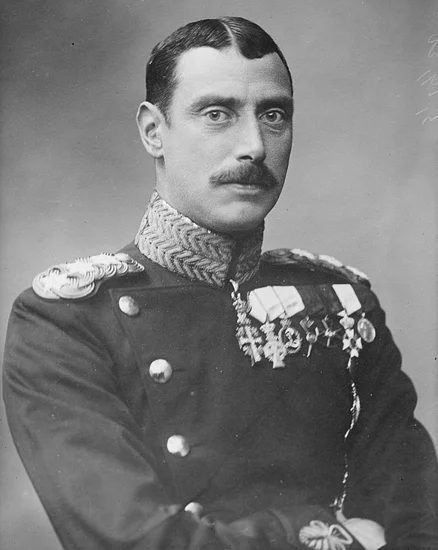
King Christian X of Denmark died in Copenhagen after leading his nation through both World Wars. His reign spanned some of the most challenging periods in Danish history.
Christian X became a symbol of Danish resistance during Nazi occupation, earning respect through his dignified opposition to German demands. His legacy represented courage and national unity during Denmark’s darkest hours.
1982 – Archibald MacLeish Dies

American poet Archibald MacLeish died in Boston, Massachusetts, after winning three Pulitzer Prizes for his literary contributions. His work combined modernist techniques with accessible themes about American identity.
MacLeish served as Librarian of Congress and helped establish UNESCO after World War II. His dual careers in literature and public service demonstrated the power of artistic voices in democratic society.
1993 – Cantinflas Dies
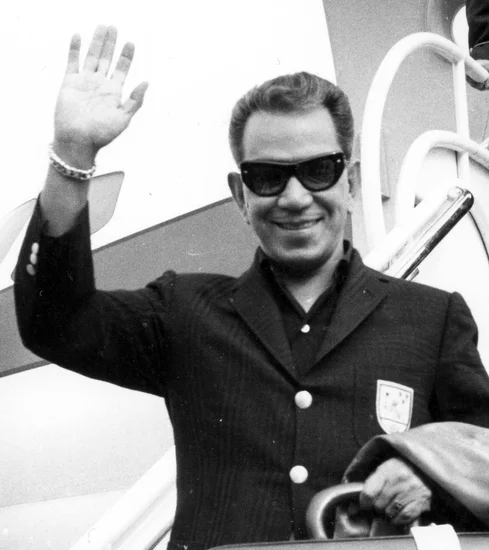
Mexican comedian Cantinflas died in Mexico City after becoming one of the most beloved entertainers in Latin American history. His character represented the common man struggling against bureaucracy and social injustice.
Cantinflas influenced comedy worldwide and helped establish Mexican cinema as a significant cultural force. His work provided social commentary while entertaining millions across the Spanish-speaking world.
2018 – Avicii Dies

Swedish DJ and producer Avicii died in Muscat, Oman, after revolutionizing electronic dance music and achieving global superstardom. His innovative sound helped bring EDM to mainstream audiences worldwide.
Avicii’s hits like “Wake Me Up” and “Levels” defined a generation’s soundtrack and influenced countless musicians. His death sparked important conversations about mental health pressures in the music industry.
Holidays and Observances on April 20
Christian Feast Day Celebrations
Christian communities worldwide observe the feast day of Saint Agnes of Montepulciano, a 14th-century Dominican nun known for her mystical experiences. Her life exemplified devotion and spiritual leadership during the medieval period.
The Eastern Orthodox Church also commemorates various saints on this date according to their liturgical calendar. These observances connect modern believers with centuries of Christian tradition and spiritual heritage.
UN Chinese Language Day
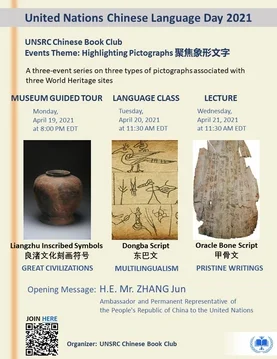
The United Nations celebrates Chinese Language Day to promote multilingualism and cultural diversity within the international organization. The date coincides with Guyu, a traditional Chinese solar term celebrating the grain rain.
This observance highlights the importance of Chinese language and culture in global communication. The celebration promotes understanding between different linguistic communities and celebrates China’s rich literary heritage.
Cannabis Culture Day
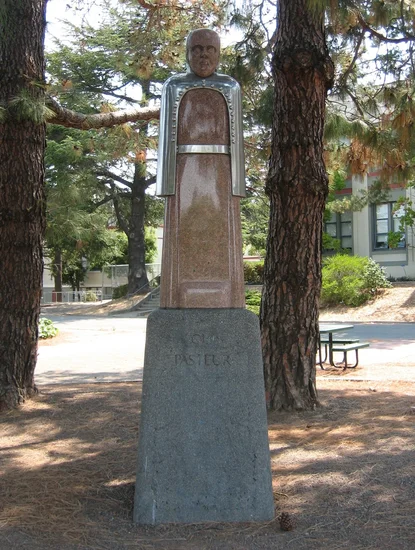
April 20th has become widely recognized as 420 Day within cannabis culture, with advocates gathering to promote legalization and celebrate marijuana use. The date has evolved into an international symbol of cannabis activism.
The observance reflects changing attitudes toward cannabis legalization and criminal justice reform. Supporters use the day to advocate for policy changes and celebrate cannabis culture worldwide.
